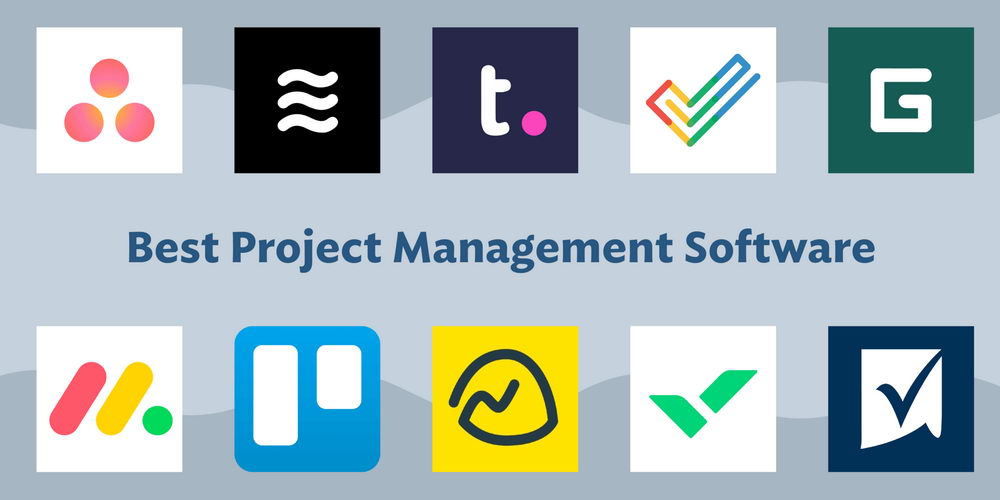In today’s fast-paced and interconnected world, effective project management is crucial for organizations of all sizes and industries. To streamline workflows, enhance collaboration, and ensure project success, businesses are turning to project management software. These powerful tools have revolutionized the way teams plan, execute, and monitor projects, providing a centralized platform for efficient project coordination. This article explores the evolution of project management software and its role in empowering teams for success.
The Early Days: Basic Task Management
In the early days of project management software, the focus was primarily on simple task management. These tools allowed teams to create task lists, assign responsibilities, and track progress. Although limited in functionality, they provided a centralized system to organize project-related activities. Examples of such software include Microsoft Project, Basecamp, and Trello.
Collaboration and Communication: Breaking Down Silos
As projects became more complex and teams became geographically dispersed, the need for enhanced collaboration and communication arose. Project management software evolved to include features like document sharing, real-time messaging, and discussion boards. This shift helped break down silos and fostered a culture of transparency and teamwork. Popular tools that emerged during this phase include Asana, Slack, and Monday.com.
Agile and Iterative Approach: Flexibility and Adaptability
With the rise of Agile methodologies, project management software adapted to support iterative project management approaches. These tools offered features like Kanban boards, burndown charts, and backlog management, allowing teams to plan, prioritize, and adapt their work dynamically. Agile-focused platforms such as Jira, Agilefant, and Targetprocess gained popularity during this time.
Integration and Automation: Streamlining Workflows
As organizations embraced digital transformation, project management software integrated with other business tools and systems. This integration enabled seamless data exchange, automated repetitive tasks, and provided comprehensive insights into project performance. Popular tools in this phase include Wrike, Smartsheet, and Airtable, which offered robust integrations with customer relationship management (CRM) software, time tracking tools, and other business applications.
Advanced Analytics and Reporting: Data-Driven Decision Making
Modern project management software leverages advanced analytics and reporting capabilities to provide valuable insights into project performance. Teams can track key metrics, generate customizable reports, and visualize data to make informed decisions. These tools enable stakeholders to identify bottlenecks, optimize resource allocation, and improve overall project efficiency. Examples of software that excel in this area are LiquidPlanner, Zoho Projects, and ProjectManager.com.
Cloud-Based Solutions: Accessibility and Scalability
The advent of cloud technology revolutionized project management software by offering accessibility and scalability. Cloud-based solutions provide teams with real-time access to project data, regardless of their location or device. These platforms facilitate seamless collaboration among remote teams, increase data security, and offer scalability as businesses grow. Well-known cloud-based project management tools include Asana, Trello, and Basecamp.
What Benefit For Using Project Management Software

Using project management software offers several benefits that can significantly enhance project success and team productivity. Here are some key advantages of using project management software:
Centralized Project Information
Project management software provides a centralized platform to store all project-related information, including tasks, deadlines, documents, communication, and progress. This ensures that all team members have access to the latest updates and eliminates the confusion caused by scattered information across various tools or email threads.
Improved Collaboration and Communication
Project management software fosters collaboration among team members by providing real-time communication channels, such as chat, comments, and discussion boards. It enables seamless sharing of documents, assigning tasks, and seeking feedback, resulting in improved coordination and transparency.
Efficient Task and Resource Management
Project management software allows teams to break down projects into manageable tasks, assign responsibilities, set deadlines, and track progress. It facilitates efficient resource allocation by providing visibility into team members’ workloads, enabling better workload balancing and avoiding overburdening individuals.
Streamlined Workflows and Automation
Project management software often includes workflow automation features, such as task dependencies, reminders, and notifications. Automation reduces manual effort, eliminates repetitive tasks, and helps streamline project workflows, enabling teams to focus on more value-added activities.
Enhanced Planning and Scheduling
Project management software enables teams to create project timelines, Gantt charts, and milestones, providing a visual representation of project progress. This helps in effective planning, identifying dependencies, managing critical paths, and ensuring timely completion of tasks.
Real-Time Project Monitoring and Tracking
Project management software offers real-time visibility into project status, allowing team members and stakeholders to track progress, identify bottlenecks, and take corrective actions promptly. It enables project managers to monitor key performance indicators (KPIs), make data-driven decisions, and ensure projects stay on track.
Comprehensive Reporting and Analytics
Project management software provides robust reporting and analytics capabilities. Teams can generate customized reports, visualize data through charts and graphs, and gain valuable insights into project performance, resource utilization, and budget management. These insights help in identifying areas for improvement and optimizing project execution.
Scalability and Flexibility
Project management software is designed to cater to projects of various sizes and complexities. It offers scalability, allowing teams to handle multiple projects simultaneously and accommodate growing requirements. Additionally, it provides flexibility by supporting different project management methodologies, such as Agile or Waterfall, to suit diverse project needs.
Documentation and Knowledge Management
Project management software acts as a repository for project-related documents, ensuring easy access and version control. It helps in organizing project-related information, maintaining a historical record, and promoting knowledge sharing among team members.
Increased Efficiency and Productivity
By streamlining processes, improving collaboration, automating workflows, and providing real-time visibility, project management software boosts team efficiency and productivity. It reduces administrative overhead, minimizes errors, and enables teams to focus on delivering high-quality project outcomes.
In summary, project management software offers numerous benefits that enhance collaboration, streamline workflows, improve planning and tracking, and increase overall project success. It empowers teams to work more efficiently, communicate effectively, and achieve better outcomes in today’s dynamic and demanding business environment.
Top Project Management Software

Here’s a list of top project management software along with brief descriptions of their key features:
Asana
Asana is a widely used project management tool that offers features such as task management, team collaboration, project tracking, customizable workflows, and integrations with other business apps. It provides a user-friendly interface and is suitable for teams of all sizes.
Trello
Trello is a visual project management tool based on the Kanban methodology. It allows teams to create boards, lists, and cards to track tasks, set due dates, assign team members, and collaborate in real-time. Trello is known for its simplicity and flexibility.
Jira
Jira is a comprehensive project management tool that supports Agile methodologies. It offers features like issue tracking, scrum and Kanban boards, release planning, and advanced reporting. Jira is widely used by software development teams but can be adapted to various project types.
Monday.com
Monday.com is a versatile project management platform that offers a customizable interface and a wide range of features. It includes task management, project planning, team collaboration, time tracking, automation, and integrations. Monday.com can be tailored to fit different project management styles.
Wrike
Wrike is a robust project management software that provides features such as task management, Gantt charts, collaboration tools, document sharing, time tracking, and reporting. It offers flexibility and scalability, making it suitable for teams of all sizes and industries.
Basecamp
Basecamp is a popular project management and team communication tool. It provides features like task lists, file sharing, message boards, real-time chat, scheduling, and milestones. Basecamp is known for its user-friendly interface and simplicity.
Microsoft Project
Microsoft Project is a comprehensive project management software designed for large-scale projects. It offers features like project planning, scheduling, resource allocation, budgeting, and advanced reporting. Microsoft Project integrates well with other Microsoft Office tools.
Smartsheet
Smartsheet is a collaborative project management platform that combines spreadsheet-like functionality with project planning features. It includes task management, Gantt charts, automated workflows, resource management, and reporting. Smartsheet is known for its ease of use and flexibility.
Zoho Projects
Zoho Projects is a cloud-based project management tool that offers a wide range of features, including task management, timesheets, document collaboration, Gantt charts, issue tracking, and budgeting. It integrates seamlessly with other Zoho business apps.
Teamwork
Teamwork is a comprehensive project management software that provides features like task management, team collaboration, time tracking, resource management, and project analytics. It offers a user-friendly interface and is suitable for teams of all sizes.
These are just a few examples of the top project management software available in the market. Each tool has its unique strengths and features, so it’s important to evaluate your team’s specific requirements before choosing the right software for your projects.
Conclusion
Project management software has come a long way, evolving from basic task management tools to comprehensive platforms that empower teams for success. The integration of collaboration features, Agile methodologies, automation, advanced analytics, and cloud technology has revolutionized the way projects are planned, executed, and monitored. With these powerful tools at their disposal, organizations can enhance productivity, improve team collaboration, and achieve project success in today’s dynamic business landscape.
As technology continues to advance, we can expect project management software to evolve further, providing even more innovative solutions for efficient project delivery.

